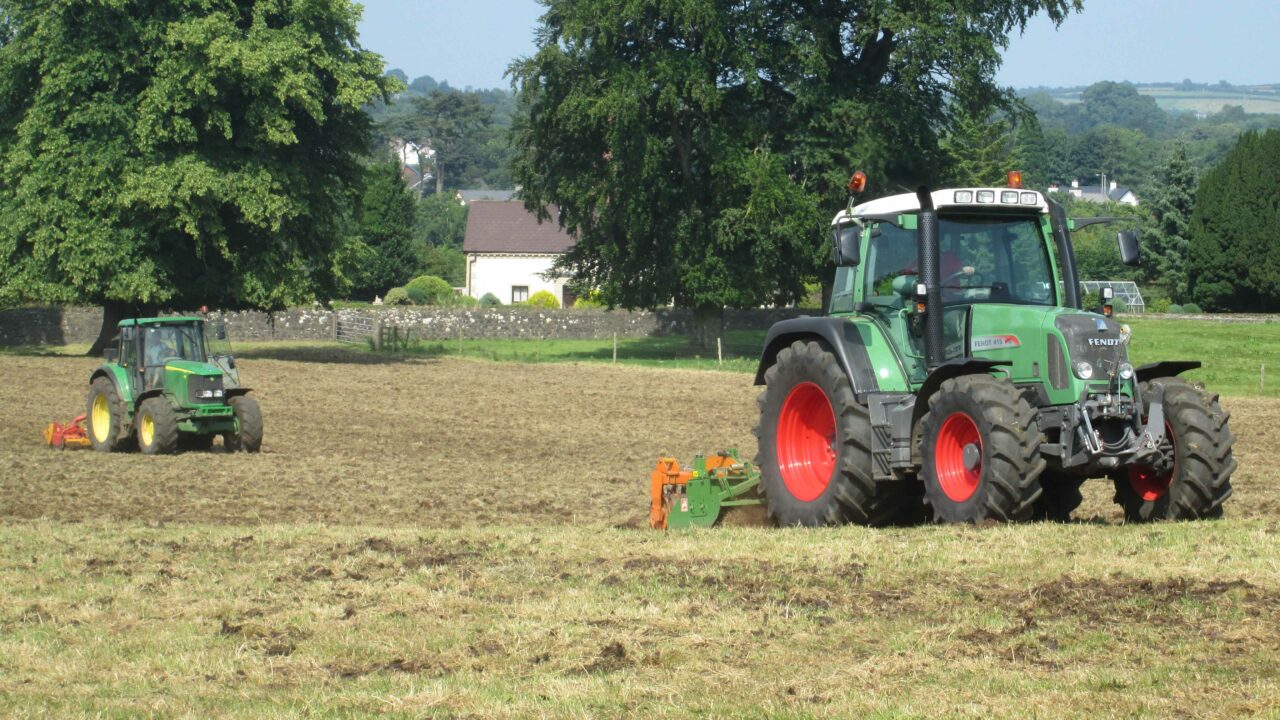
Now is an excellent time to consider reseeding as rain is forecast and there should be adequate time for the new sward to become established and grazed before autumn.
“Plant breeders are continually striving to produce improved grass varieties while weeds and weed grasses are continually invading existing swards. Hence reseeding a field should result in significantly more grass being produced, especially at the shoulders of the season.”
That’s according to Dr Norman Weatherup, Senior Grassland Technologist, CAFRE, Greenmount who also notes that reseeding is also a good opportunity to repair swards that have been damaged by stock (poaching) or by heavy machinery (compaction).
He says it is advisable to have a soil sample taken before reseeding as there may be problems with soil acidity (requiring lime) or fertility (requiring P and K applications). Poor performance of a reseeded sward or a complete reseed failure is often blamed on the seed but is more likely to have some other cause.
“There are several ways of improving a sward. Rectifying acidity and fertility and implementing a rotational grazing programme will encourage growth of existing ryegrass plants without reseeding. However, full ploughing or some form of min-till will be required to establish a new sward.
“Ploughing is the most expensive option but will be required if the sward has suffered significant damage. Min-till is a lower cost option, which involves destruction of the old sward followed by shallow cultivation of the topsoil. This procedure also helps to retain soil moisture when conditions are drier.
Weatherup outlined that now is an excellent time to consider reseeding as rain is forecast and there should be adequate time for the new sward to become established and grazed before autumn.
He said: “Later reseeds can suffer from frost damage, ground conditions are likely to be poorer for spraying and grazing opportunities will be reduced. Seed costs are a relatively small part of the total cost of reseeding so it is worth investing some time in selecting the mix that is most suitable for your fields.
“It is also important to choose varieties with a suitable heading date for your system, as well as being the most productive. Clover can contribute to sward productivity by fixing its own nitrogen from the atmosphere and reduce greenhouse gases. On the other hand, including clover will limit the range of suitable sprays and it may be advisable to tackle any weed problems in the year before reseeding.”
Weatherup stressed that once a reseed has been established it must be continually monitored for signs of pest damage, especially slugs and leatherjackets and treated as soon as damage is noticed.
“The new reseed should also be monitored for weeds, e.g., chickweed, which can quickly smother the new sward. Grasses should have at least two leaves and clover should have three leaves before spraying.
“The new sward should be grazed as soon as roots are strong enough (roots remain in the ground when the plant is pulled). Early grazing is important to allow light down to the base of the sward to encourage tillering. Frequent grazing of lower covers is best to establish a dense, even sward.”
Irrespective of the method of sward improvement there are a number of secrets to success.
• Rectify any soil compaction by either ploughing or subsoiling.
• Correct the soil acidity (pH) and fertility based on recent soil analysis.
• Sow seed into a firm and fine seedbed
• Don’t bury seed too deep – aim for 6-12mm.
• Lightly roll after broadcast sowing to ensure good seed contact with the soil and to reduce water loss from the soil surface.
• Control pests (leatherjackets, slugs) and weeds (chickweed, docks) if necessary.
• Graze frequently with lighter stock such as lambs or weanlings.

